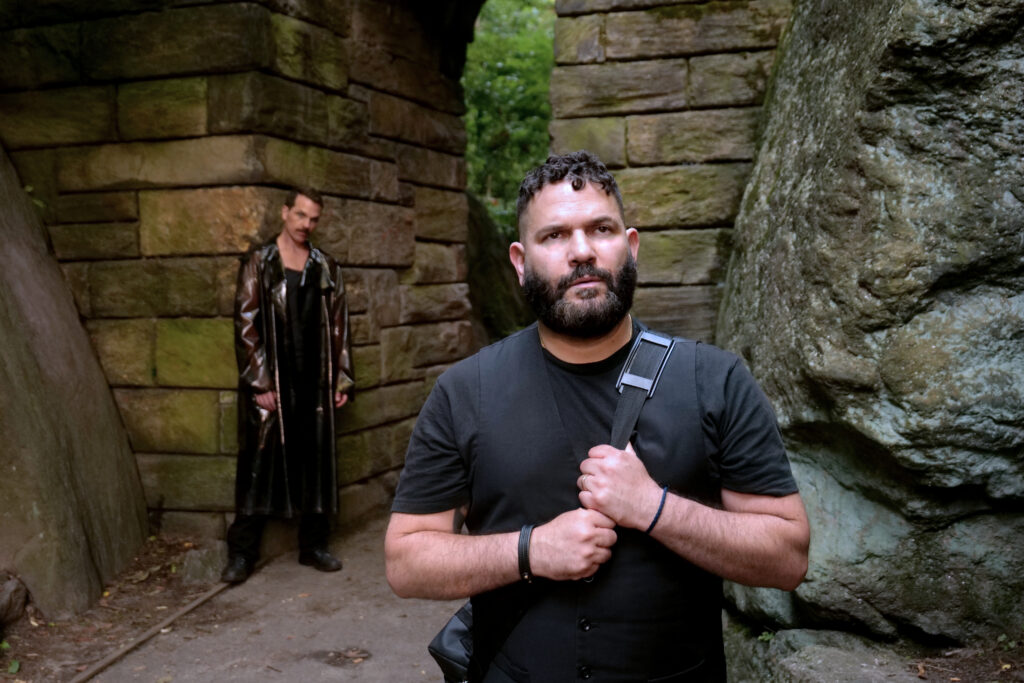Guillermo Díaz dishes on the thrills of his latest movie, now opening in LA!
You Can’t Stay Here enjoys an exclusive LA run at the Laemmle Glendale starting February 8th, with in-person Q&As from director Todd Verow and Guillermo Diaz.
Full info is available here.
In the new indie film, You Can’t Stay Here, director Todd Verow and actor Guillermo Díaz offer a poignant (and sexy) portrayal of 1990s NYC during the AIDS crisis, set against the backdrop of Central Park’s cruising culture.
This collaboration melds Verow’s distinctive New Queer Cinema vision with Díaz’s authentic storytelling, challenging mainstream perceptions and championing the essence of queer narratives. In an exclusive interview with Queer Forty, the duo delves into their artistic journeys, the importance of authenticity, and the unique magic of filming within Central Park’s iconic Rambles.
In You Can’t Stay Here, Díaz portrays Rick, an art photographer in 1990s NYC during the AIDS crisis. Rick’s fateful encounter in Central Park with a murderer propels a gripping cat-and-mouse narrative. Verow, a luminary in New Queer Cinema with over thirty-five award-winning films, merges his experimental background with poignant storytelling, while Díaz, recognized for roles in Scandal and indie gems like Stonewall, delivers a compelling portrayal of Rick’s struggles with identity and relationships amidst the backdrop of Central Park’s cruising culture.
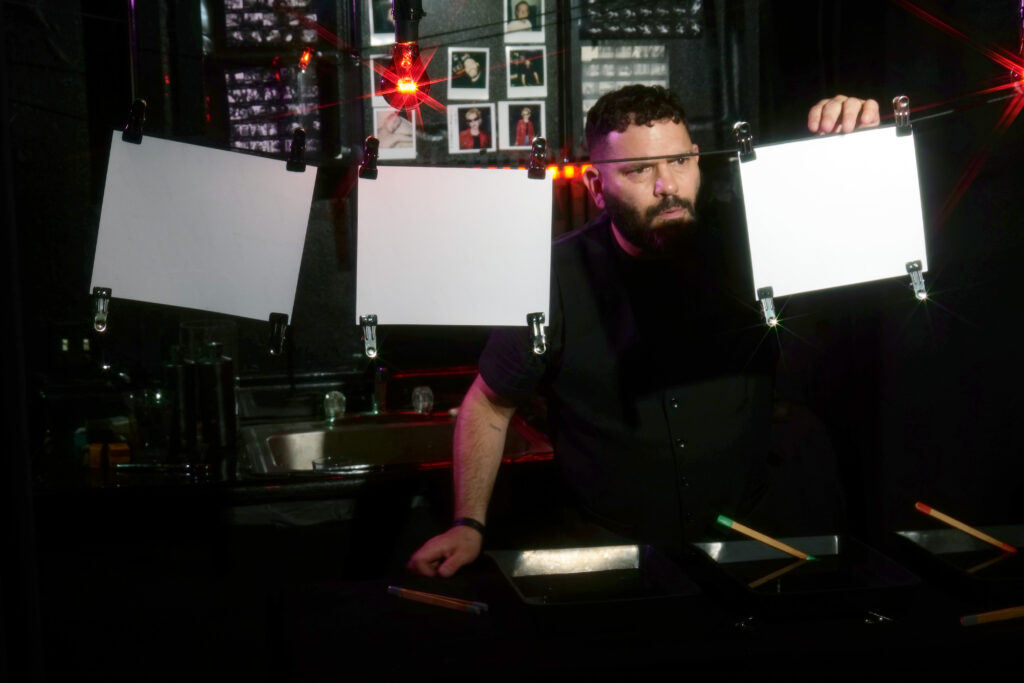
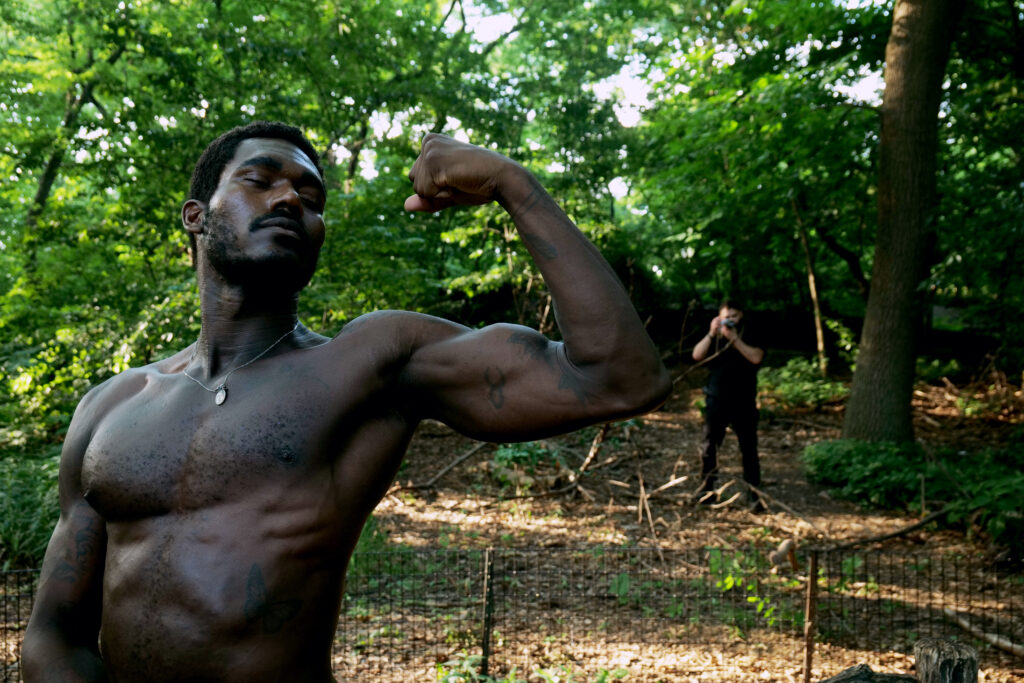
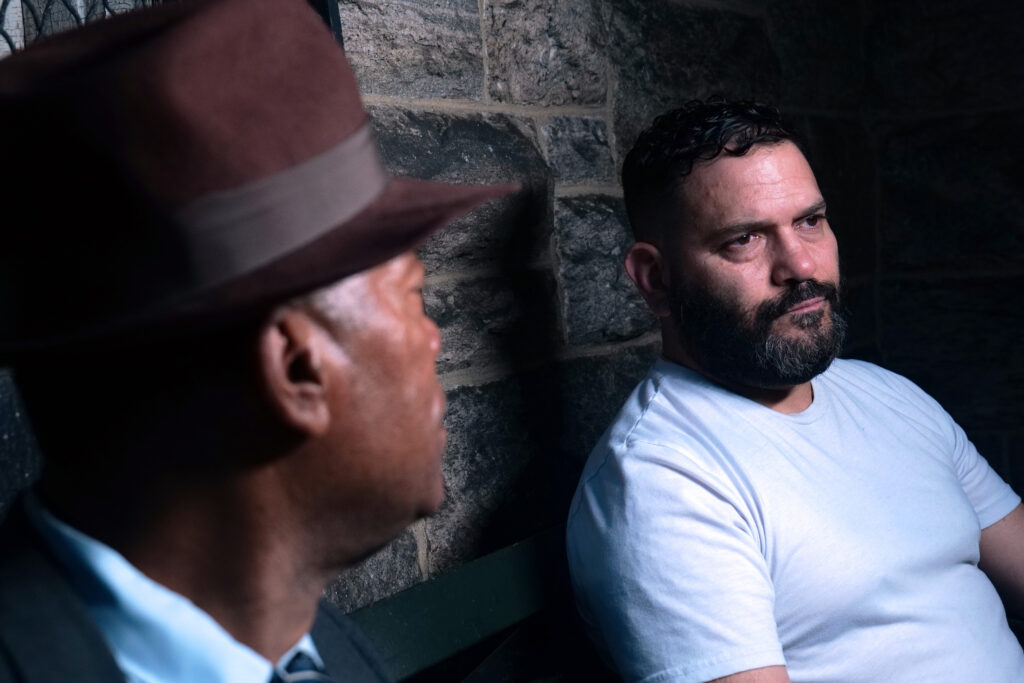
The film echoes real-life events, shedding light on the dangers faced by gay men in the nineties, intertwined with the AIDS crisis and the NYPD’s scrutiny at cruising sites. Díaz’s nuanced performance delves into Rick’s complexities, from grappling with his sexuality to navigating strained familial ties. The narrative underscores how Central Park serves as Rick’s refuge, initially for catharsis and later as an avenue for redemption.
Queer Forty: Congratulations on You Can’t Stay Here. I want to commend you because you’ve both managed to maintain your artistic integrity over the years which can be so rare in the industry. How have you been able to accomplish this?
Todd Verow: I learned this early on. I like doing things on my own and I have my own style that I like. I went to art school, so I learned how to create things on my own and do my own thing. I really like to do my own thing, keep the budgets low, and keep the keep the shoots tight, and you can keep sustain yourself. And that’s what I’ve tried to do over all these years.
Guillermo Díaz: Early on I did a film called Stonewall and at that point in my career my managers told me, you either gotta come out and say you’re gay, or you gotta say nothing at all, and you’re gonna be in the closet, and I was like, fuck that. That was my early twenties. And I was like, I’m not playing that game. When you’re in your early twenties you don’t give a fuck either. If they don’t want to work with me, I don’t want to work with them. And I was honest, and I came out and honestly, I think that that I don’t give a shit. This attitude helped me because I started doing movies and TV shows. And everybody knew I was gay, and nobody cared. And I kept working. So, I was like, Cool. I knew that’s the way it was gonna be. So, I kept going. One of the reasons I wanted to work with Todd is that he has that energy and it’s in his work. His work is very unapologetic and provocative, and that that excites me. I’m glad our paths crossed, and we did this movie together.
Queer Forty: How did you two connect to work on this project?
GD: The first film of Todd’s that I saw was Frisk. And then, you know, Goodbye Seventies has a very special place in my heart as well. When I turned fifty, I was like, I want to do all the stuff I’ve always wanted to do. I’m not waiting around anymore. I got up, I’m doing it: Now. I’m going to make the first move. So, I reached out to Todd on social media. I was like, I love your work. I want to work with you. I love the horror and thriller genre, and Todd responded, and we met within like two weeks and talked about our ideas. Todd had a great idea he’s always wanted to do: a film about cruising. And then it all came together. I was just like: I need to work with this director, and Todd responded positively and wanted to work with me as well. And that’s how it happened.
Queer Forty: Can you speak to writing and filming sex positive work and what the mainstream might perceive as taboo?
TV: That’s one of the reasons why I like making movies on my own is that I don’t have to deal with that. I don’t I don’t think about that kind of pressure. I just think about what kind of movie do I want to make and how can I make it and I think that’s incredibly freeing, and that’s the only way I could really work. Guillermo and I talked a lot about what we wanted the movie to be about, and we both agreed that being in that sort of heightened sexual state is so thrilling and appealing and that’s part of the reason why people go cruising. That’s something we wanted the movie to show.
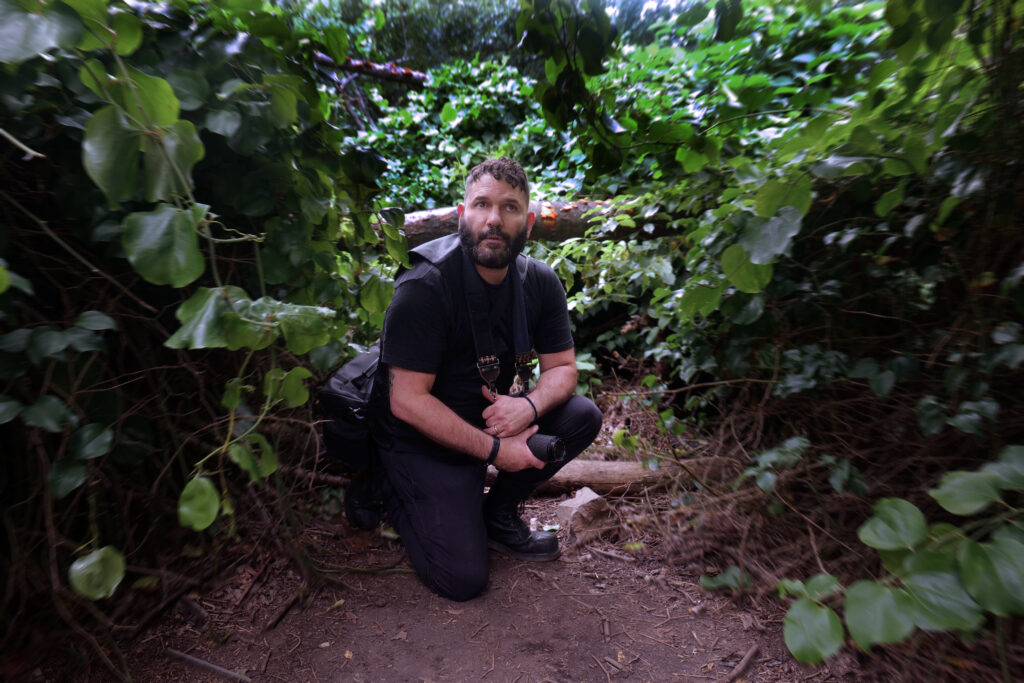
Queer Forty: The mythological story of Orpheus resonates throughout the film.
TV: In the Central Park Rambles you go through this archway to get into it. The way it’s designed is so magical and surreal, it’s like the person who designed it made it to be a cruising area where you walk through this doorway, and you enter another world. It immediately made me think of the story of Orpheus. I was inspired by John Cocteau’s Orpheus movie and the idea that he goes there, and he can be himself and be with other people like him, and then he goes back into the real world, and they eventually meet and that’s when the conflict happens.
Queer Forty: Did you film in the Rambles in Central Park?
TV: Yes, there’s something magical about that place. It all needed to be all shot there. We were a little nervous, but everyone was very cooperative. All the cruisers that were there appreciated what we were doing and helped us out. It really worked out for the best so I’m really glad we stuck to that. Guillermo and I both decided that, you know, we need to do the whole thing there.
GD: Central Park didn’t give Todd any pushback at all, they were like, sure, as long as you don’t bother anybody. I thought we would need permits and that there would be security telling us to put the camera away, but we had none of that thank goodness. We were able to just shoot the film day by day and night by night and it was easy to shoot there.
TV: It helps some very, very small crew. The park really became a character of its own in so many ways. And I think it’s the Central Park is many characters.
Queer Forty: Did you encounter any mishaps while you were filming?
TV: The bathroom that we filmed in was the only working bathroom in Central Park at that time. We managed to shoot there for a whole day, and people were very cooperative. They waited till we finished takes to use the bathroom. I was really shocked and really proud of New Yorkers for being so cooperative and not disruptive. For the most part, everyone there was into what we’re doing and let us do our thing and didn’t bother us. So that was amazing.
GD: We even had a couple of people who were in the park be extras in the film.
TV: There were a few times when we were going to film in a specific area and there’d be some cruisers there engaging in some activity, so we’d be like, oh, let’s wait for them to finish before we go over there. This made what we were making authentic.
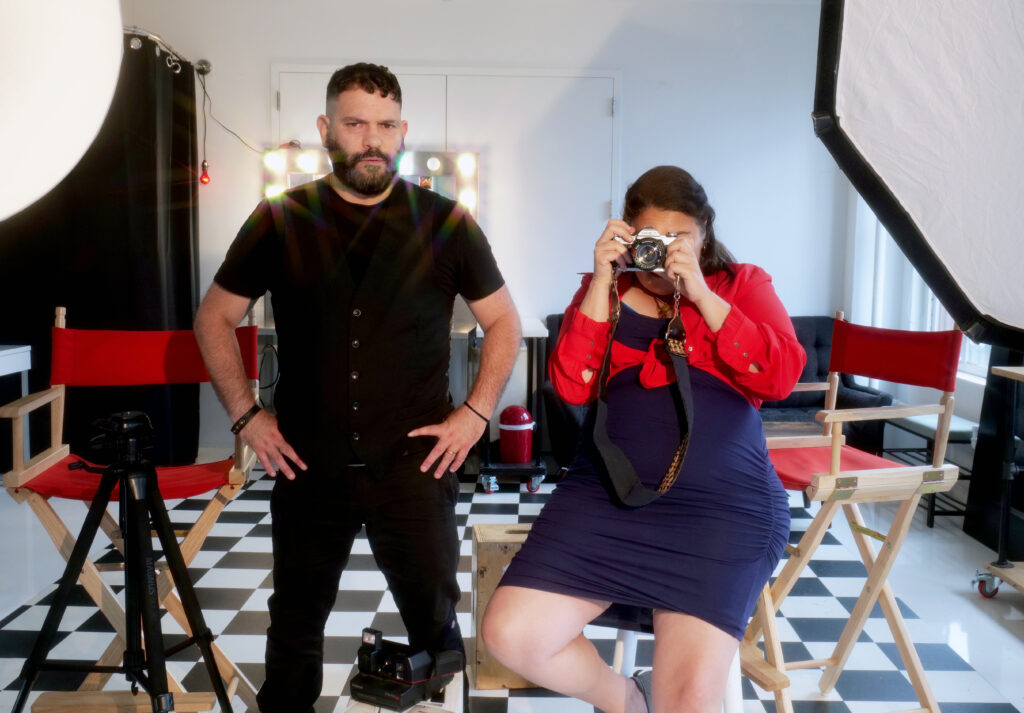
Queer Forty: Speaking of authentic stories, why would you two say it’s important to tell queer stories?
TV: For me it starts with the character. I think of a character and then try to stay as true to that character as I can in order to tell their story. It’s not, a universal gay story or universal queer story. It’s their story, and you can’t shy away from any sort of darker sides or offensive sides that they might have. This is their story, and it doesn’t represent everyone. If you’re telling a queer story, just stay true to your characters. Don’t be afraid of the question, what does this mean? Or what people are gonna think about this person? It’s just this person and that’s their story.
GD: Todd and I told each other a lot of stories. I told him stories about things that happened to me, you know, while cruising and in life and we use a lot of those things in the film. I think being super authentic is very important to both of us. There’s so much Hollywood bullshit out there that we both gravitate towards the gritty truth. That’s what’s exciting about our movie and exciting about Todd’s work and, it’s just real. A lot of it is made up and stylized, but it’s still real, gritty, and exciting.
TV: One thing to add is that I spent a lot of time in the park, observing and meeting different people that were cruising there. One of the things that inspired me to make this movie was the movie Cruising. The stuff that was shot in Central Park was all these Leatherman cruising in the in the Rambles and I was like that’s not realistic. That’s not who these people are. I wanted to show the real people. To me that was really important.
GD: Even in Cruising it’s like they get right to the sex you know, like what is it Al Pacino says, “Hips or lips?” It’s so corny. But they’re like ready to fuck. Whereas in the Rambles…I like to call it the Rambles, I put an S at the end, is that wrong?
Queer Forty: It’s The Ramble but we all call it The Rambles.
GD: Our film is you know, it’s more about the that excitement of just being in that environment. A lot of guys go there and cruise but rarely get off because then once you get off, then you’re done. You want to stay in that mode of just meeting different guys and you know…so yeah, our movie is very that. It’s very different from Cruising.
Queer Forty: Do you have any advice for emerging queer artists who want to get their work out there?
TV: Don’t think that you need to get permission from someone. I think that’s a problem that a lot of people think they need to get someone to approve them to do something or raise a certain amount of money. Everybody’s got a cell phone, just start making a movie and stay true to yourself. Stay true to your story that you want to tell. And just do it. There’s nothing stopping you from doing it except yourself.
GD: I echo exactly what Todd said. It sounds cliche, but truly, tell stories that about things that you know about experiences that you’ve had, and the work is going to thrive from that. And just be yourself. Again, it’s so cliche and corny but it’s, it’s the absolute truth and just do it. It’s now or never, right? There’s never going to be a perfect time. Just do it.
Queer Forty: What are your hopes for the new year?
TD: I hope to work with Guillermo again, we’ve been talking about a couple of other projects. Hopefully, that will happen in the next year.
GD: I’m so excited to work with Todd again. I really am craving it. You know, I did a couple of things after our movie and it’s just not the same as being on a Todd Verow set. Two and a half years ago, I directed my first Indie feature and I’m in the postproduction process of that now and starting to submit to festivals. I don’t freaking know how Todd does it because it’s not an easy feat at all. It was super difficult and challenging. And especially when it’s not my writing or my film, I just directed it. But anyway, it was very exciting and that should be out hopefully in the next year and a half or so.
You Can’t Stay Here has an exclusive NYC theatrical engagement, opening January 5 2024 at the IFC Center.

